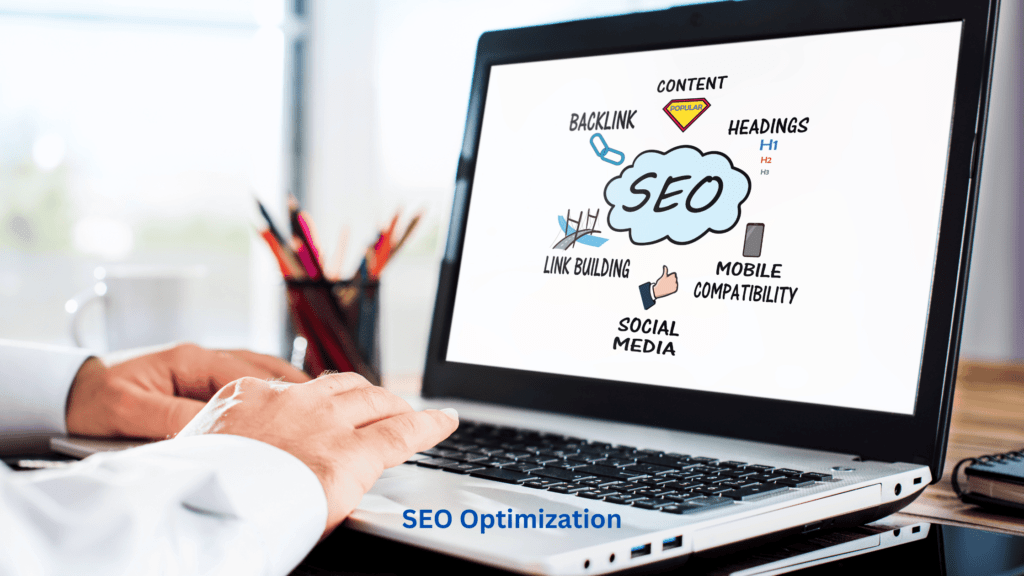In today’s digitally-driven world, the influence of digital marketing on small businesses in India is undeniable. The proliferation of the internet and mobile technology has transformed the landscape for entrepreneurs, enabling them to reach wider audiences with more precision and at a fraction of traditional marketing costs. Small businesses, often constrained by limited resources, can now leverage digital marketing to compete with larger enterprises, fostering innovation and growth. This article delves into the multifaceted impact of digital marketing on small businesses in India, exploring various online marketing strategies, the importance of SEO, and the role of social media marketing in this dynamic ecosystem.
1. The Rise of Digital Marketing in India
1.1. The Digital Revolution
Over the past decade, India has witnessed a digital revolution that has reshaped its economic landscape. With over 700 million internet users, India is the second-largest online market globally, trailing only China. This surge in connectivity has opened up vast opportunities for small businesses to engage with a digitally-savvy consumer base. The widespread adoption of smartphones, affordable data plans, and the government’s Digital India initiative have further fueled this growth, making digital marketing an indispensable tool for small businesses aiming to expand their reach and influence.
1.2. The Shift from Traditional to Digital
Traditional marketing methods, such as print ads, television commercials, and billboards, have long been the mainstay of advertising. However, these channels often come with high costs and limited targeting capabilities. In contrast, digital marketing offers small businesses the ability to reach specific demographics with precision, track engagement in real time, and adjust strategies dynamically. The shift from traditional to digital marketing is not just a trend but a necessity for small businesses looking to thrive in a competitive environment. This transition has leveled the playing field, allowing small enterprises to challenge established brands and carve out their niche.
2. Online Marketing Strategies for Small Businesses
2.1. Search Engine Optimization (SEO)

SEO is the backbone of digital marketing, playing a crucial role in enhancing a business’s online visibility. By optimizing website content for search engines, small businesses can increase organic traffic and improve search engine rankings. In India, where the digital marketplace is crowded, effective SEO strategies can help small businesses stand out from the competition. This involves keyword research, on-page optimization, link building, and creating high-quality content that resonates with the target audience. An SEO-optimized website not only attracts more visitors but also builds credibility and trust with potential customers.
2.2. Pay-Per-Click Advertising (PPC)
PPC advertising is a cost-effective way for small businesses to drive targeted traffic to their websites. Platforms like Google Ads allow businesses to bid on keywords relevant to their products or services, ensuring their ads appear at the top of search results. This can be particularly beneficial for small businesses in India looking to achieve quick results and a strong online presence. PPC campaigns can be tailored to specific goals, such as increasing website traffic, generating leads, or boosting sales. By carefully managing budgets and monitoring performance metrics, small businesses can maximize their return on investment.
2.3. Content Marketing
Content marketing is a powerful strategy that involves creating and distributing valuable, relevant, and consistent content to attract and engage a target audience. For small businesses in India, content marketing can take various forms, including blog posts, videos, infographics, and e-books. By providing informative and entertaining content, businesses can establish themselves as industry experts and build a loyal customer base. Content marketing also complements other digital marketing efforts, such as SEO and social media marketing, by driving organic traffic and fostering brand awareness.
2.4. Email Marketing
Despite the rise of social media, email marketing remains one of the most effective digital marketing strategies for small businesses. With a well-crafted email campaign, businesses can nurture relationships with existing customers, re-engage inactive ones, and convert leads into sales. Email marketing allows small businesses to deliver personalized content directly to the inboxes of their audience, enhancing customer loyalty and retention. By segmenting their email lists based on customer behavior and preferences, small businesses can ensure their messages are relevant and impactful.
3. The Role of Social Media Marketing
3.1. Social Media Platforms as Business Tools

Social media platforms have become integral to digital marketing, offering small businesses in India a cost-effective way to connect with their audience. With platforms like Facebook, Instagram, Twitter, and LinkedIn, businesses can engage with customers, promote their products, and build brand awareness. Social media marketing enables small businesses to reach a diverse audience, interact with customers in real time, and create a community around their brand. By leveraging the power of social media, small businesses can humanize their brand, foster customer loyalty, and drive business growth.
3.2. Influencer Marketing
Influencer marketing is a subset of social media marketing that has gained immense popularity in recent years. By partnering with influencers who have a strong following in their niche, small businesses in India can tap into new markets and enhance their brand credibility. Influencers act as trusted intermediaries, bridging the gap between brands and consumers. For small businesses with limited marketing budgets, collaborating with micro-influencers—individuals with a smaller but highly engaged audience—can yield significant returns. Influencer marketing is particularly effective in industries such as fashion, beauty, and food, where personal recommendations carry substantial weight.
3.3. Social Media Advertising
Social media advertising allows small businesses to reach a broader audience beyond their existing followers. Platforms like Facebook Ads and Instagram Ads offer sophisticated targeting options, enabling businesses to tailor their campaigns to specific demographics, interests, and behaviors. Social media advertising is a versatile tool that can be used to achieve various objectives, from increasing brand awareness to driving website traffic and boosting sales. By analyzing campaign performance and optimizing ad creatives, small businesses can ensure their social media advertising efforts deliver the desired results.
4. Challenges and Opportunities in Digital Marketing
4.1. Challenges Faced by Small Businesses
While digital marketing presents numerous opportunities, small businesses in India also face several challenges. One of the primary obstacles is the rapidly changing digital landscape, which requires businesses to stay updated with the latest trends and technologies. Limited resources, both in terms of budget and manpower, can also hinder small businesses from fully capitalizing on digital marketing. Additionally, the intense competition in the digital space means that businesses must constantly innovate and differentiate themselves to capture and retain customer attention.
4.2. Opportunities for Growth and Innovation
Despite these challenges, digital marketing offers small businesses in India unparalleled opportunities for growth and innovation. By embracing data-driven marketing strategies, businesses can gain valuable insights into customer behavior and preferences, enabling them to make informed decisions and optimize their marketing efforts. The rise of e-commerce platforms has further democratized access to the digital marketplace, allowing small businesses to expand their reach and tap into new markets. By leveraging the power of digital marketing, small businesses can transform their operations, enhance customer engagement, and drive sustainable growth.
5. The Future of Digital Marketing for Small Businesses
5.1. Embracing Emerging Technologies
The future of digital marketing for small businesses in India is poised to be shaped by emerging technologies such as artificial intelligence, machine learning, and augmented reality. These technologies offer exciting possibilities for businesses to enhance their marketing efforts, personalize customer experiences, and streamline operations. AI-powered chatbots, for instance, can provide 24/7 customer support, while machine learning algorithms can analyze vast amounts of data to identify trends and optimize marketing strategies. By staying abreast of technological advancements, small businesses can maintain a competitive edge and drive innovation in their marketing endeavors.
5.2. Building Sustainable Customer Relationships
As digital marketing continues to evolve, the focus for small businesses should be on building sustainable customer relationships. In an age of information overload, businesses that prioritize authenticity, transparency, and value-driven marketing will stand out. This involves creating meaningful connections with customers, understanding their needs and preferences, and delivering exceptional experiences at every touchpoint. By fostering trust and loyalty, small businesses can cultivate long-term relationships that drive repeat business and referrals, ensuring their continued success in the digital age.
5.3. The Role of Digital Marketing Agencies
For small businesses that lack the resources or expertise to manage digital marketing in-house, partnering with digital marketing agencies can be a viable solution. These agencies bring specialized knowledge and experience, helping businesses develop and execute effective digital marketing strategies. By outsourcing digital marketing efforts to experts, small businesses can focus on their core competencies and achieve their marketing objectives more efficiently. Collaborating with a reputable digital marketing agency can provide small businesses with a competitive advantage, enabling them to navigate the complexities of the digital landscape with confidence.
Conclusion
Digital marketing has emerged as a game-changer for small businesses in India, offering unprecedented opportunities for growth, innovation, and success. By harnessing the power of digital marketing strategies, including SEO, social media marketing, and content marketing, small businesses can compete on a level playing field with larger enterprises. The impact of digital marketing extends beyond increased sales and revenue; it empowers small businesses to build meaningful connections with customers, enhance brand loyalty, and drive long-term sustainability. As the digital landscape continues to evolve, small businesses in India must embrace the possibilities of digital marketing to thrive in an ever-changing world.
In summary, digital marketing has revolutionized the way small businesses operate in India. By adopting various online marketing strategies and leveraging the potential of SEO and social media marketing, small businesses can unlock new avenues for growth and success. The future of digital marketing holds immense promise, and small businesses that embrace this digital transformation will be well-positioned to thrive in the competitive marketplace.
Stay tuned for more updates by following Humstory.













